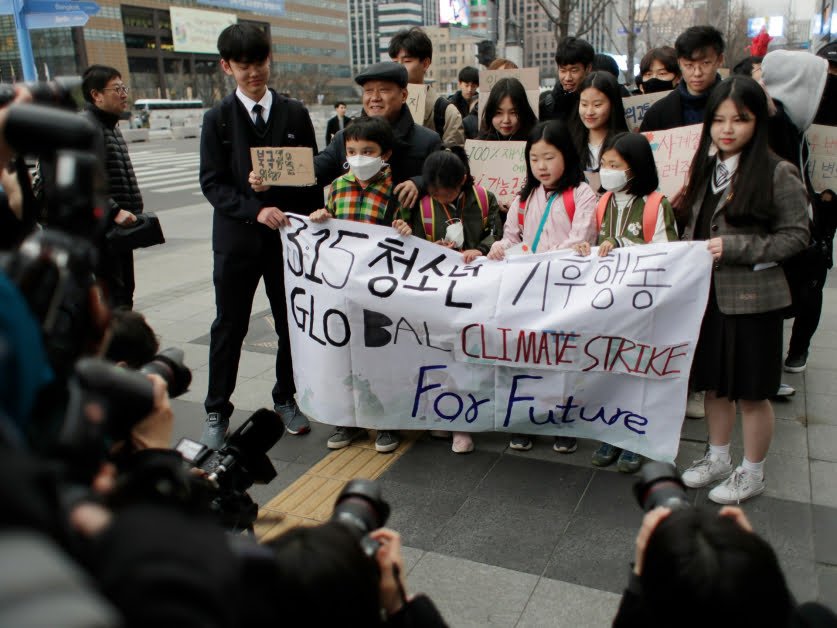In a historic legal development, infants and young children in South Korea are leading a charge against their government, demanding accountability for its inaction on the pressing issue of air pollution. As air quality levels in the country continue to reach hazardous levels, these young plaintiffs are seeking justice and protection for their fundamental right to clean air and a healthy environment. This unprecedented lawsuit raises crucial questions about the obligation of governments to ensure the well-being of their youngest citizens and the lasting consequences of environmental neglect on future generations. Let’s delve into the reasons behind this legal action and explore the potential implications it holds for the future of environmental advocacy in South Korea.
The Young Plaintiffs Taking Legal Action
Choi Hee-woo, a 20-week-veteran embryo turned one of the youngest-ever plaintiffs, is spearheading a landmark climate lawsuit against South Korea. Along with more than 60 other children, this 18-month-old plaintiff awaits a verdict expected later this year. The case, known as “Woodpecker vs South Korea,” was filed by around 200 individuals, including 62 children under the age of five. Another lawsuit in 2020 involved 19 youth activists. These plaintiffs argue that the government’s lack of robust climate action violates their constitutional right to life and a healthy environment. South Korea, under the 2015 Paris Agreement, has committed to limiting global temperature rise to 1.5 degrees Celsius this century, making it imperative for the country to act decisively on climate issues.
South Korea’s Climate Commitments
South Korea has set ambitious targets under the Carbon Neutrality Act to reduce greenhouse gas emissions by 40% by 2030 compared to 2018 levels. This Nationally Determined Contribution (NDC) is crucial for aligning the country with global emission reduction goals outlined in the Paris Agreement. However, the plaintiffs argue that the current emission reduction targets fall short of what is necessary to effectively combat climate change. To achieve their goals by 2030, South Korea would need to significantly ramp up efforts to reduce emissions annually. The country also aims to achieve net-zero emissions by 2050, highlighting its commitment to long-term environmental sustainability.
Impact on Climate Action in South Korea
The impending verdict in the case comes at a critical juncture as countries prepare to submit revised emission reduction targets under the Paris Agreement. If the court rules in favor of the plaintiffs, South Korea may be compelled to enhance its climate action plans for the next decade. Currently, South Korea’s climate action is deemed “insufficient” by Climate Action Tracker, indicating the need for more robust measures to address emissions. With only 5.4% of its energy coming from renewable sources in 2022, South Korea lags behind global averages and neighboring countries like Japan and China. Additionally, as the second-highest carbon emitter per capita in the G20, South Korea faces significant challenges in meeting its climate targets.
Notable Climate Cases Led by Youth
Youth-led climate lawsuits have gained traction globally in recent years. In Germany, young individuals successfully challenged the Federal Climate Protection Act in 2020, leading to a court ruling that declared the country’s climate mitigation plans inadequate. Similarly, in the United States, youth plaintiffs prevailed in a lawsuit against the state of Montana, compelling authorities to consider climate change impacts when approving fossil fuel projects. These cases underscore the growing influence of young people in shaping climate policy and holding governments accountable for their environmental responsibilities.


